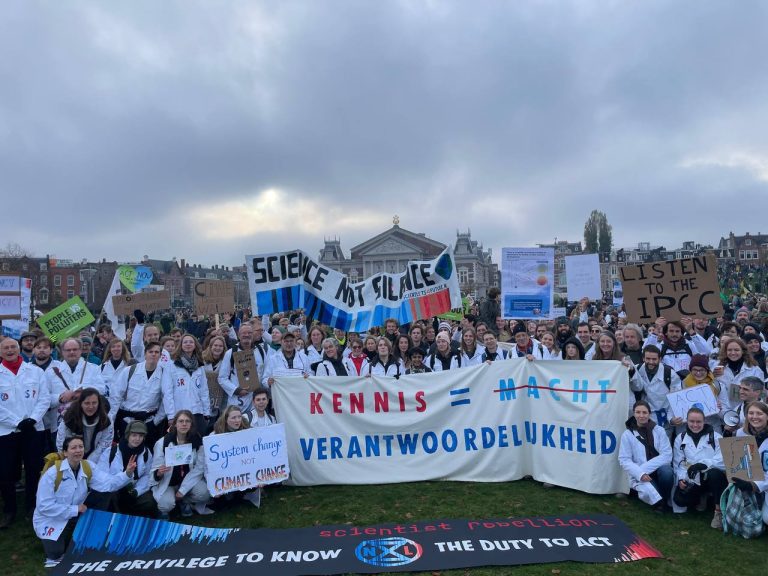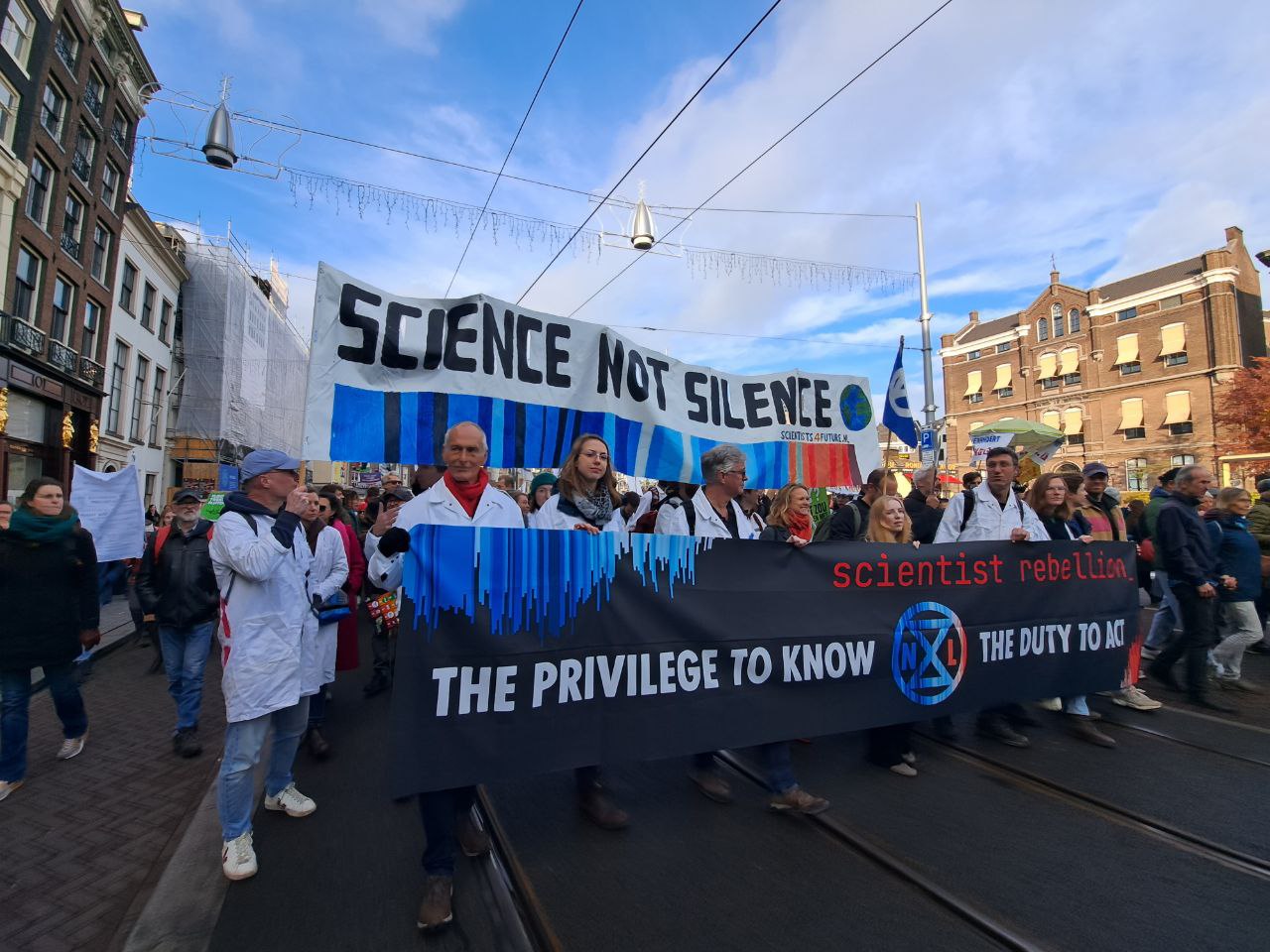Scientists in white lab coats joined the climate march, in which around 85 thousand people participated, last Sunday. “I have to do more than just carry out research.”
(Photos: Scientist Rebellion)
Last Sunday, tens of thousands of protesters led by Greta Thunberg walked from Dam Square to Museumplein in Amsterdam. Many scientists also joined, dozens of whom had donned lab coats for better recognisability. The privilege to know, the duty to act was one of the slogans on the banners.
Focus
Some 15 Delft researchers were present, estimates Professor of Hydraulic Engineering Wim Uijttewaal (Faculty of Civil Engineering and Geosciences). He had left his toga and lab coat at home this time. He noticed that from TU Delft, most of the participants were PhD students. “The young generation was well represented”, he said.
Still, Uijttewaal was somewhat disappointed afterwards. This was because the mixing of climate action with the war in Gaza led to confusing situations (in Dutch) on stage. Some of the audience disengaged and the brotherly atmosphere turned.
Uijttewaal was done with it: “Exctinction Rebellion is developing into a broad anti-imperialist movement. As a result, the broad support they had gained during the A12 blockades is crumbling.” Whether he will march along next time, he cannot yet say.

Motivated
Another participating researcher was Assistant Professor Marthe Wens (VU Amsterdam) of action group Scientist Rebellion. She researches the consequences of drought.
“I just see the impact of drought, especially for vulnerable communities to which water already presents a problem. I’m constantly forced to show them a future to which they can’t really adapt. This has motivated me to take a stand for the climate. I have to do more than just carry out research.”
But there are also plenty of scientists who hardly deal with the climate in their own work but are still concerned, she says. “We’re currently looking into how we can disseminate climate knowledge in education. Because why should someone who studies economics, for example, not know anything about the consequences of climate change?”
Under the motto Cut the ties, Marthe Wens and other researchers are campaigning to cut the ties with the fossil industry. Last week, they called upon research funding body NWO and academic society KNAW to critically assess such collaboration.
Answer
They’ve now received an answer. “We share your concerns”, write both NWO and the KNAW (in Dutch). But research funding body NWO doesn’t wish to cut the ties with the fossil industry just like that. This is said to be “too simple an appeal for too complex an issue”. The research funding body would prefer an open discussion with the fossil industry, the authors of the letter and the KNAW.
The Royal Netherlands Academy of Arts and Sciences (KNAW) would also like to discuss things first, both within its own institutes and within science at large. The first debate was held last month. Scientists from different disciplines will be given the opportunity to speak, as well as administrators, researchers representing business and “more critical voices in science”.
HOP, Bas Belleman/Delta, Jos Wassink
Translation: Taalcentrum-VU
Do you have a question or comment about this article?
redactie@hogeronderwijspersbureau.nl


Comments are closed.